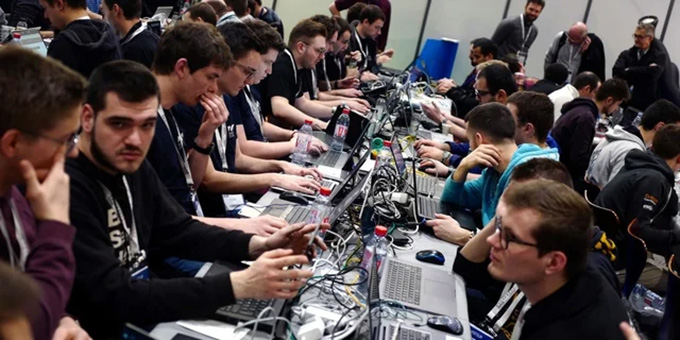Gentlemen, we interfered, we interfere, and we will interfere … Carefully, precisely, surgically, and in our own way, as we know how. During our pinpoint operations, we will remove both kidneys and the liver at once.
These are the words of the architect of Russian online disinformation, Yevgeny Prigozhin, speaking in November 2022, just before the US midterm elections. Prigozhin founded the notorious Russian “troll factory”, the Internet Research Agency (the agency) in 2013.
Since then, agency trolls have flooded social media platforms with conspiracy theories and anti-western messages challenging the foundations of democratic governance.
I have been investigating agency tweets in English and Russian since 2021, specifically examining how they twist language to bend reality and serve the Kremlin. My research has examined around 3 million tweets, taking in three specific case studies: the 2016 US presidential election, COVID-19, and the annexation of Crimea. It seemed that wherever there was fire, the trolls fanned the flames.
Though their direct impact on electoral outcomes so far remains limited, state-backed propaganda operations like the agency can shape the meaning of online discussions and influence public perceptions. But as another US election looms, big tech companies like X (formerly Twitter) are still struggling to deal with the trolls that are spreading disinformation on an industrial scale.
The creation of the troll factory
Research has suggested that the agency began experimenting with online propaganda and disinformation before 2013, employing a modest number of people tasked with spreading pro-Kremlin narratives and targeting opposition figures within Russia.
By 2012, it started to focus on international audiences, particularly the US. Since then, it has been implicated in numerous campaigns to influence public opinion in Russia and abroad, most notably attempting to interfere in the 2016 US presidential election. Prigozhin and his troll factory colleagues later confirmed these findings.
The agency was founded and financed by Prigozhin and initially based in St Petersburg. It operated through several front entities, including Teka and Glavset, both of which were dissolved and reformed under new names so it could continue its operations seamlessly.
Prigozhin first gained prominence as a Kremlin caterer but later expanded his activities significantly, leading the agency and then the Wagner Group – Russia’s state-funded private military company that was active in Ukraine and Africa, among several other countries under Prigozhin, but is now reported to have been largely subsumed by the Kremlin. During the full-scale invasion of Ukraine, Prigozhin increasingly challenged Russia’s military top brass for its handling of the conflict.
His fate took a decisive turn after a brief but highly publicised mutiny in June 2023, when Wagner forces marched toward Moscow, stopping less than 125 miles (200km) from the capital after negotiations. As part of the settlement, Prigozhin temporarily relocated to Belarus. Then on August 23, 2023, a jet with Prigozhin on board crashed near Kuzhenkino village, north of Moscow killing everyone on board.
Some sources claimed that Prigozhin’s death was orchestrated by the Kremlin, marking him out as another figure who challenged its authority and paid the ultimate price.
As its operations scaled up between 2014-2015, the agency hired hundreds of online commentators (trolls) who were responsible for promoting and amplifying the narratives that suited the Kremlin’s agenda.
According to previous whistleblowers, who started shedding light on the organisation in 2015, most agency employees were young people, often students, recruited through public job adverts, with applicants undergoing interviews involving English language and “political knowledge” tests. Earning modest salaries of around 40,000 rubles per month (roughly £324 or US$432).
Author Bio: Maksim Markelov is a PhD Candidate, Russian and East European Studies at Manchester University

